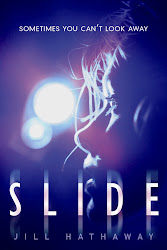 by Fran McDowell
by Fran McDowell
My dad is having problems with his cable. I’m having problems with a story line. While I stood behind his television, I noticed how the rainbow of individual colored plugs tapered neatly into one solid, black cable line. It occurred to me that I was looking at a replica of my story problem: too many colored plugs that haven’t yet come together. The myriad plugs have become a creative roadblock for me. It’s been this way for a while, now.
That same evening I crawled into bed, put on my headset, and touched the Podcast icon. What I heard was an interview with Jonah Lehrer for his new book, ‘Imagine’ That: Fostering Creativity In The Workplace. The words “imagine” and “creativity” in the title caught my attention. So I stayed awake (well, for the most part) and listened. The book, apparently, discusses the human mind in creative mode. It delves into “insight”: when it happens, how we can encourage it, and the role that relaxation plays in moments of revelation.
Jonah explained that insight “comes when we’ve given up, when we feel like we have nothing left to say. It comes in the shower. It comes in the bathtub. It comes under the apple tree. So it comes in the least expected moments.” And that these revelations, these moments of insight, play a big role in creativity.
Since the book focuses primarily on the workplace, he used the 3M company as an example. What researchers have discovered is that people who are more relaxed, who exhibit lots of alpha wave activity (associated with states of relaxation), who are in good moods, tend to solve a lot more insight puzzles. In fact, 3M has become so convinced that relaxation is crucial to creative thinking that their employees get one hour a day to do “whatever”. It doesn’t have to be project related, work related. Napping during this hour is acceptable. So is playing ping-pong. They’ve discovered that chaining yourself to your computer and willing yourself to create, simply doesn’t work.
At this point in the interview I became a little disheartened because I know that the butt-in-chair philosophy so many of us writers subscribe to is a necessity. The same goes for outlining, storyboarding and character drafting. The question then becomes: How creative can you really be when you force yourself to write? Verses, how productive are you if you don’t?
There was another point Jonah touched on in the interview that intrigued me. He described a study where two groups of people are given a set of tasks to solve, such as coming up with creative ideas using bricks, or solving various insight puzzles. The one difference in the two groups? One group was told to pretend they were seven years old while doing the tasks. The group pretending to be seven years old, even though they only pretended for a couple of minutes, solved a lot more problems. Simply by letting go of their adult constraints, and remembering what it was like to be a child, enabled them to become more creative.
I have a feeling that finding your creative mind comes back to a balance of butt-in-chair and letting go. For some of the folks at 3M, I’ll bet playing ping-pong is the perfect diversion. For me, nothing beats travel for finding that mental niche, (though most of the time I have to settle for poking around the ethnic food isle or watching Anthony Bourdain). But as to the second point, perhaps if I work on my problem novel while pretending to be a fifteen year old, instead of trying to think like a 15 year old, I’ll be able to meld my red, white and yellow plot lines into one effective story.




 by Fran McDowell
by Fran McDowell